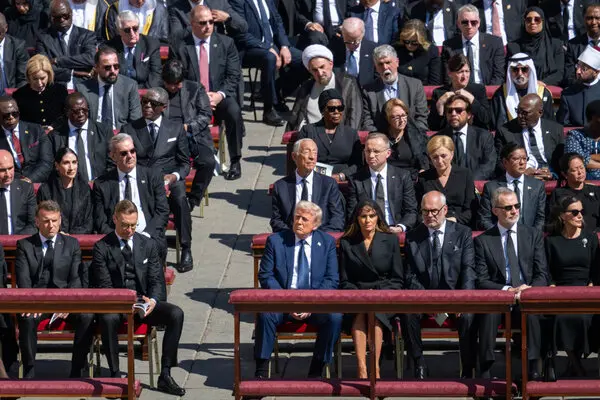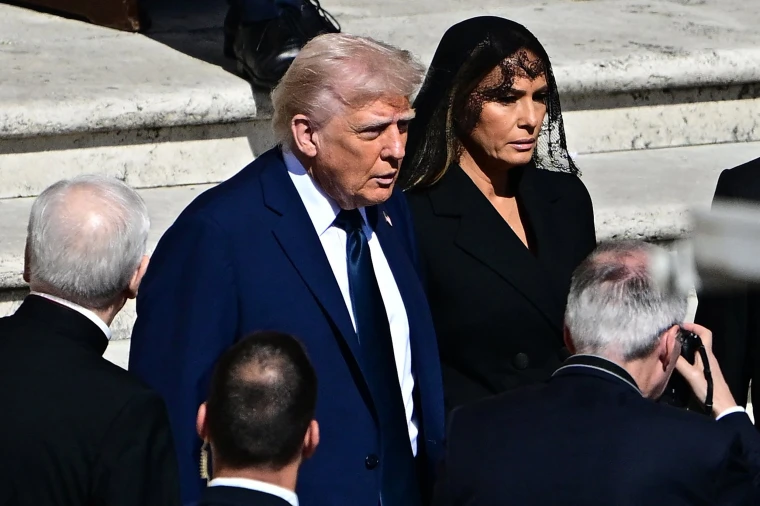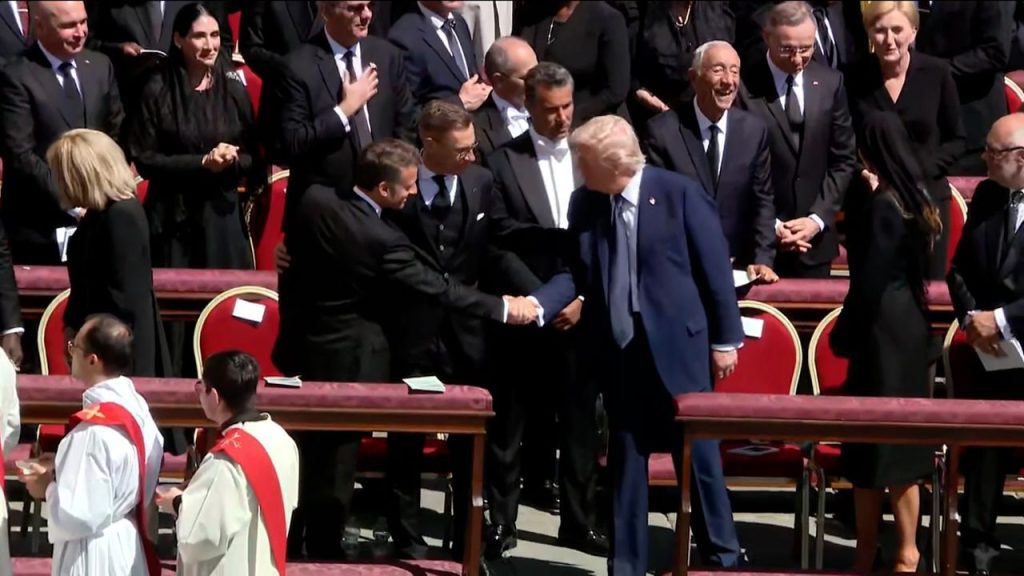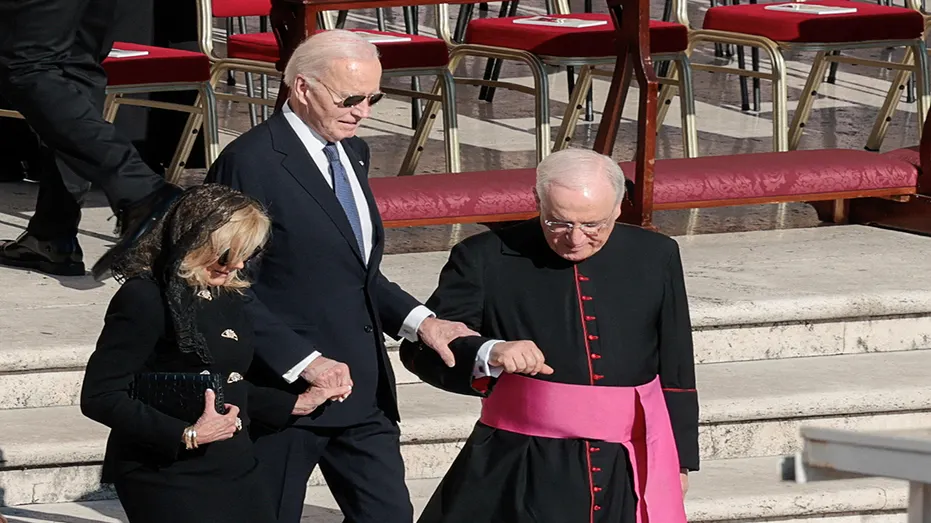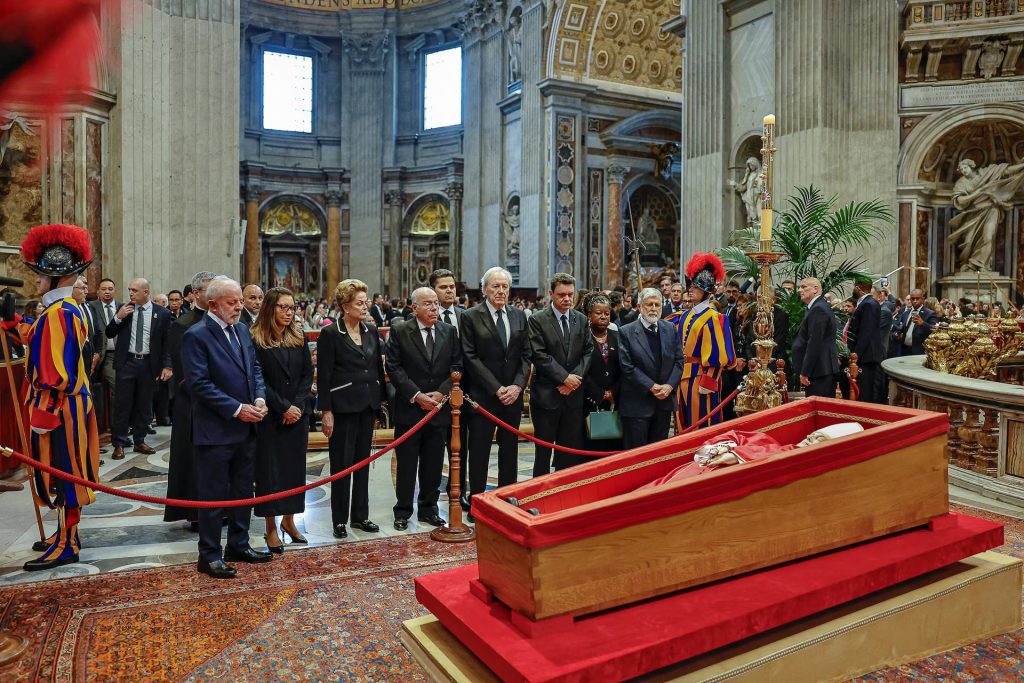
Comparing Political Entourages at the Vatican Funeral: A Study in Leadership and Priorities
The attendance of world leaders at the funeral of Pope Francis in April 2025 provides a revealing lens through which to examine the varying approaches to international representation, fiscal responsibility, and political optics. The size and composition of political entourages at such high-profile events often reflect a leader’s priorities, their respect for the occasion, and their regard for public resources. Below, we conservatively analyze and compare the entourages of several key leaders at the Vatican funeral, with a particular focus on the question of why Brazil’s President Luiz Inácio Lula da Silva included Gleide Andrade, the Workers’ Party (PT) treasurer, in his delegation, and how this contrasts with the approaches of other leaders.
Brazil: Lula’s Excessive Entourage
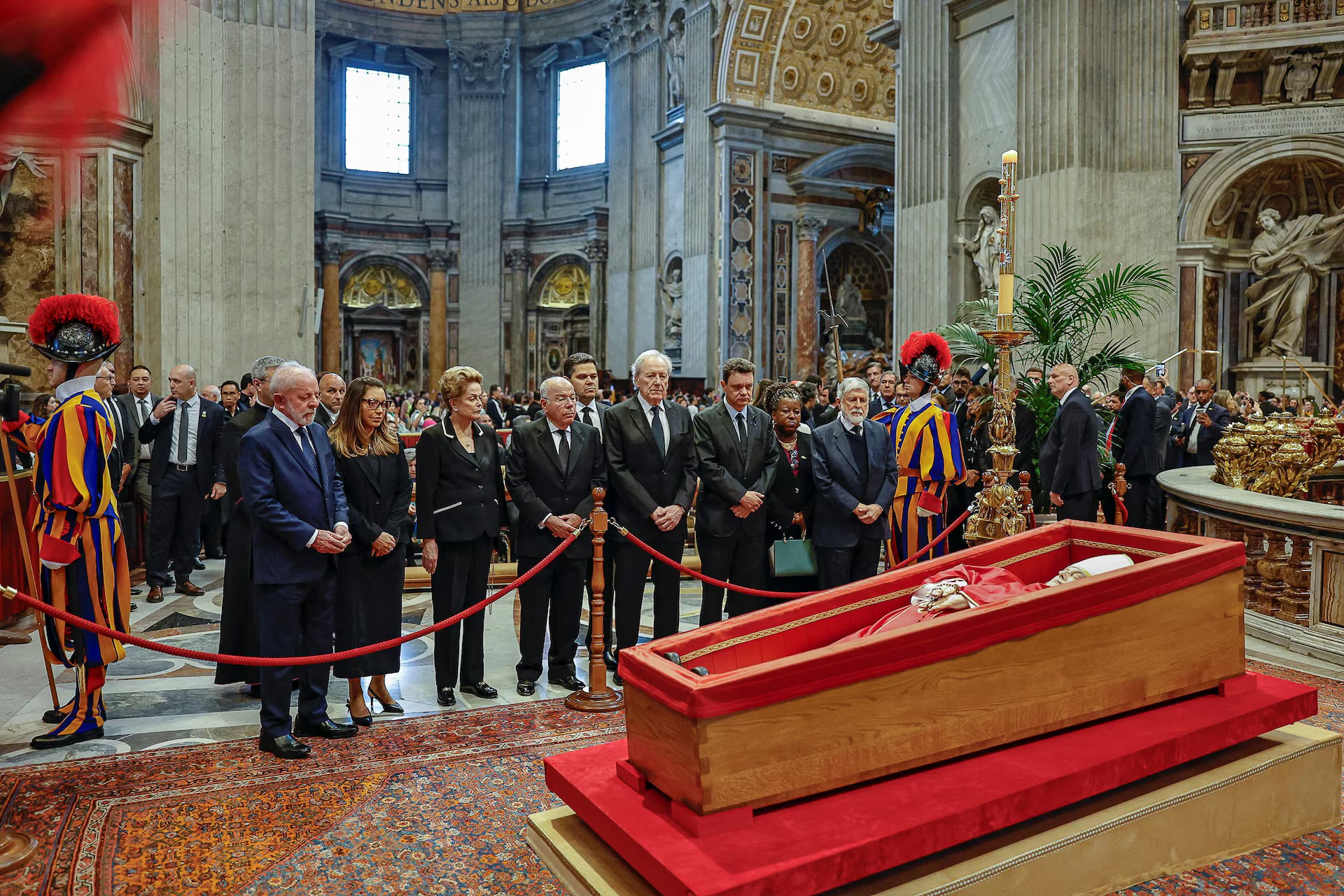
Lula’s delegation to the Vatican was notably large, consisting of approximately 20 individuals, including himself, First Lady Janja, four ministers, twelve congress members, and, most controversially, Gleide Andrade, the PT’s national treasurer who holds no public office. The inclusion of Andrade, a party operative with no governmental role, has sparked widespread criticism in Brazil, particularly on platforms like X, where users have decried the trip as a “spectacle” funded by taxpayers. This raises serious questions about Lula’s motives. Was Andrade’s presence a gesture of political favoritism, a means to bolster PT influence on an international stage, or simply an example of unchecked entitlement? The lack of transparency from Lula’s administration fuels speculation, but the optics are undeniably poor. At a time when Brazil grapples with economic challenges, the decision to fly a large entourage, including a party functionary, on a Brazilian Air Force plane suggests a disconnect from the public’s demand for fiscal prudence.
The size of Lula’s delegation also stands out when compared to past Brazilian representation at international events. For instance, at the COP-28 climate conference in 2023, Lula’s delegation was reported to include 1,337 government officials and 1,744 non-governmental invitees, dwarfing the U.S. delegation of 159 government officials and 611 others. While COP-28 was a different type of event, this pattern of oversized entourages underscores a consistent approach under Lula: prioritizing political spectacle over restraint.
United States: Trump’s Minimalist Approach
In stark contrast, President Donald Trump attended the Vatican funeral with only his wife, Melania, forming a delegation of just two. This minimalist approach reflects a conservative ethos of fiscal responsibility and respect for the solemnity of the occasion. By limiting his entourage to his spouse, Trump avoided the appearance of exploiting a sacred event for political gain. His decision aligns with a broader philosophy of streamlining government expenditure, a hallmark of conservative governance that prioritizes taxpayer money. The contrast with Lula is striking: where Trump’s delegation was lean and focused, Lula’s was bloated and included figures whose presence defied explanation. Trump’s approach not only respected the Vatican’s solemn atmosphere but also sent a message to Americans that their resources would not be squandered on unnecessary travel.
France: Macron’s Modest Delegation
French President Emmanuel Macron attended the funeral accompanied solely by his wife, Brigitte, mirroring Trump’s approach. This small delegation underscores a commitment to decorum and efficiency, qualities often associated with conservative fiscal values, even if Macron’s politics lean more centrist. By keeping his entourage to a minimum, Macron avoided drawing attention away from the purpose of the trip—honoring Pope Francis—and demonstrated respect for French taxpayers. The similarity between Macron and Trump’s approaches highlights a shared understanding that high-profile international events should not be treated as opportunities for political grandstanding.
Italy: Meloni’s Solo Attendance
Italian Prime Minister Giorgia Meloni, whose country hosted the funeral, attended alone, without even a spouse or additional officials. As a conservative leader, Meloni’s decision exemplifies austerity and focus. Her solo presence was particularly fitting given Italy’s role as the host nation, where logistical demands might have justified a larger entourage. Instead, Meloni chose to lead by example, prioritizing the solemnity of the event over any temptation to showcase political allies. Her approach stands in sharp contrast to Lula’s, whose large delegation included figures like Andrade, whose role remains unjustifiArgentina: Milei’s Lean Team
Argentine President Javier Milei, known for his libertarian and fiscally conservative stance, reportedly led a delegation of eight individuals. While larger than those of Trump, Macron, or Meloni, Milei’s entourage was still significantly smaller than Lula’s and likely consisted of essential diplomatic or security personnel, given his emphasis on reducing government expenditure. Milei’s approach reflects his broader agenda of slashing public spending, a conservative principle that resonates with voters frustrated by Argentina’s economic woes. Compared to Lula’s inclusion of a party treasurer, Milei’s delegation appears far more justifiable and aligned with public expectations of responsible governance.
The Question of Gleide Andrade
The inclusion of Gleide Andrade in Lula’s entourage remains the most perplexing aspect of Brazil’s delegation. As PT treasurer, Andrade manages party finances, not national policy, and her presence at a papal funeral lacks any apparent diplomatic or governmental rationale. Several theories emerge, none flattering to Lula’s leadership:
1-Political Cronyism: Andrade’s inclusion may reflect Lula’s tendency to reward party loyalists with high-profile opportunities, regardless of their relevance to the event. This aligns with criticisms of the PT’s history of blurring party and state lines.
2. Power Projection: By bringing a party operative, Lula may have sought to signal PT’s dominance within his administration, even on the international stage, at the expense of Brazil’s image.
3. Indifference to Optic: Lula’s decision suggests a lack of concern for public perception, assuming that Brazilians will overlook or tolerate such excesses. This arrogance is particularly tone-deaf given Brazil’s economic struggles.
In contrast, no other leader’s delegation included figures as incongruous as Andrade. Trump, Macron, Meloni, and Milei all adhered to a principle of relevance, ensuring that their entourages—if any—consisted of individuals with clear diplomatic or personal roles (e.g., spouses or essential staff). Lula’s inclusion of Andrade stands out as an anomaly, inviting scrutiny and reinforcing perceptions of mismanagement.
Broader Context and Conservative Critique
The Vatican funeral offers a microcosm of how leaders balance respect for international obligations with domestic accountability. Conservative principles—fiscal restraint, transparency, and prioritization of public interest—were evident in the approaches of Trump, Macron, Meloni, and Milei. Each kept their delegations small, avoiding the perception of exploiting a solemn event for political gain. Lula’s approach, however, exemplifies a liberal tendency toward excess and entitlement, where public resources are treated as tools for political maneuvering rather than as a public trust.
This is not an isolated incident. Lula’s oversized delegation at COP-28 and other international events suggests a pattern of prioritizing political optics over fiscal responsibility. Such actions erode public trust, particularly when figures like Andrade, whose presence serves no clear national interest, are included. The contrast with leaders like Trump, who limited his entourage to his wife, or Meloni, who attended alone, underscores a fundamental difference in leadership philosophy. Conservatives argue that leaders must model austerity and accountability, especially in times of economic hardship. Lula’s failure to do so, coupled with the unanswered question of Andrade’s role, fuels legitimate criticism of his administration’s priorities.
The entourages at Pope Francis’ funeral reveal a spectrum of leadership styles. Trump, Macron, and Meloni exemplified conservative values of restraint and respect, keeping their delegations minimal and focused. Milei, while slightly less austere, maintained a lean team consistent with his fiscal conservatism. Lula, however, stands out for his oversized entourage, particularly the inclusion of PT treasurer Gleide Andrade, whose presence remains unjustified and emblematic of broader issues within his administration. While other leaders prioritized the solemnity of the occasion and the responsible use of public funds, Lula’s approach suggests a troubling indifference to both. Brazilians deserve answers about why their taxes funded Andrade’s trip, and conservatives will rightly continue to demand accountability for such flagrant excesses.

